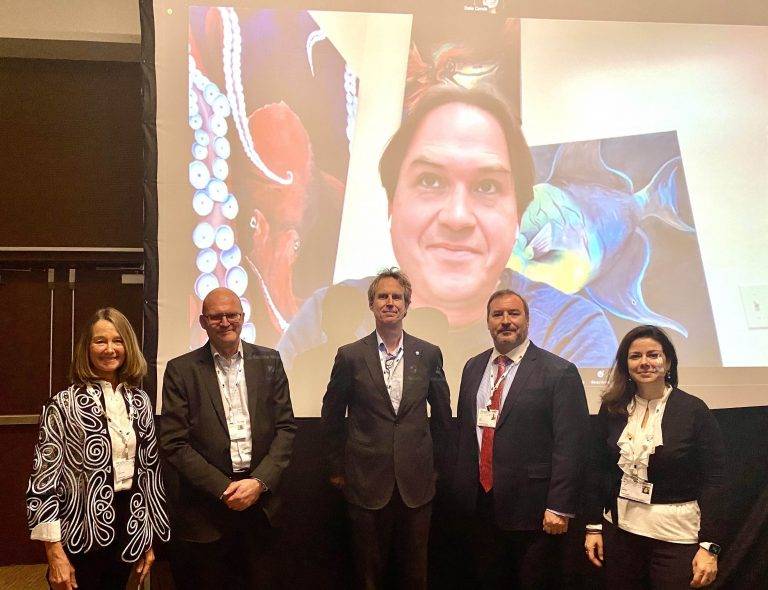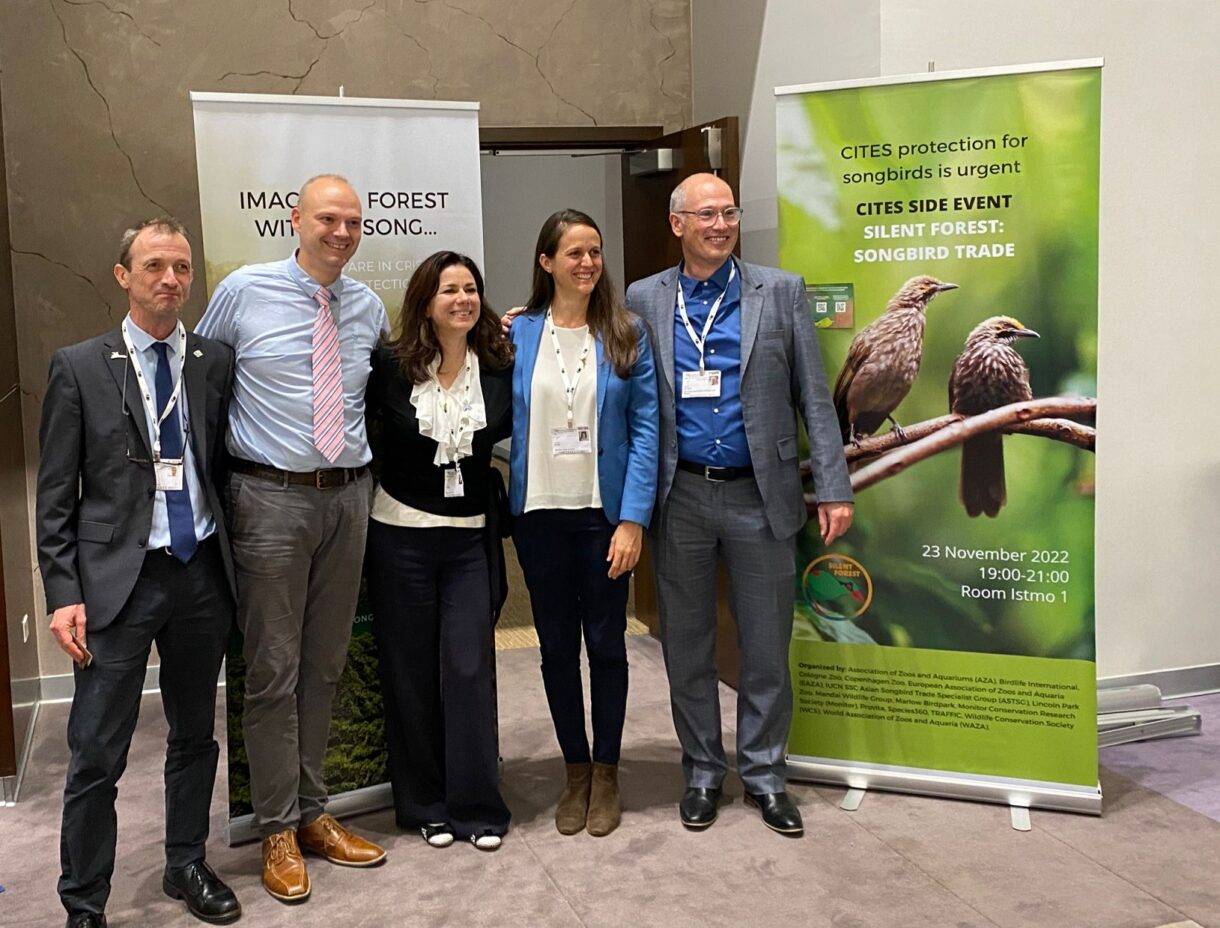More than 2,000 participants representing signatory countries, non-governmental organizations, industries and other observers, gathered in November for the 19th meeting of the Conference to the Parties (CoP19) to the Convention on International Trade in Endangered Species of Wild Fauna and Flora (CITES). The CoP, nicknamed the World Wildlife Conference, brings together governments (Parties) to review and make decisions on regulating trade in endangered species.
Species360’s mission is to facilitate international collaboration in collecting and sharing knowledge on animals, and their environments — which is why attending forums such as CITES is so important.
Species360’s delegation, Professor Dalia Conde, Dr. Sandy Trautwein and Gavrielle Cohen, attended the CoP to represent Species360 members and to highlight research from the Species360 Conservation Science Alliance (CSA). In addition, together with partners, we hosted two side events where we presented information documents under the Species Knowledge Initiative (SKI). The SKI is led by the CSA, and aims to bring together multiple data sources to help fill data gaps and prioritize species for further research to determine how international trade impacts their population numbers.
At the CoP, Species360 partnered with the World Association of Zoos and Aquariums (WAZA) to draw attention to the role of aquariums and zoos in changing what is known about these species. During a side event hosted by WAZA and Species360, an expert panel provided an update on progress on the SKIs on Ornamental Fish, Sharks and Rays, and discussed its impact on CITES decision-making.
Silent Forest: The Songbird Trade
Species360, together with multiple partners, including the European Association of Zoos and Aquaria (EAZA) and BirdLife International, among many more, also co-hosted The Silent Forest: Songbird Trade side event to discuss songbird conservation and trade. The event was moderated by Species360’s Director of Science Prof. Dalia Conde and EAZA’s Danny de Man and aimed to inject fresh energy into the topic of songbird conservation, as actions promised for songbirds at the previous CoP failed to gain momentum.
Speakers presented current songbird trade research from the CSA and BirdLife International – mentioned in CoP19 Doc. 74 – that can be used to support the CITES decision-making process.
Over the past two years, the CSA, in collaboration with partners, conducted a study, as outlined in AC31 Doc. 30 of CoP18, which resulted in the development of the Songbird Species Knowledge Initiative (SKI) information document, which presents a unique insight into the scope of the global songbird trade.
Songbirds were the first taxon to be mapped using the SKI methodology, with the aim of identifying and ranking species in terms of their prevalence in international wildlife trade, and to direct where further research and conservation action should be taken to conserve these species.
Sharks, Rays and Ornamental Fish
The Shark Species Knowledge Initiative (SKI) maps data on 1,171 extant species of sharks and batoids (Elasmobranchii) across six knowledge areas using information from open-data repositories, while the Ornamental (Aquarium) Fish SKI maps data on 15,964 extant species of marine bony fishes (Actinopterygii and Sarcopterygii). The main aim of these reports is to identify species for which research on the impact of international trade is urgent, with the objective of supporting CITES decision-making.

Read the full Species360 news written by Gavrielle here
Read more about the Songbird Species Knowledge Initiative and download the reports here
Front picture: from left: Roger Safford, Simon Bruslund, Dalia Conde, Bibiana Suvre and Danny de Man








